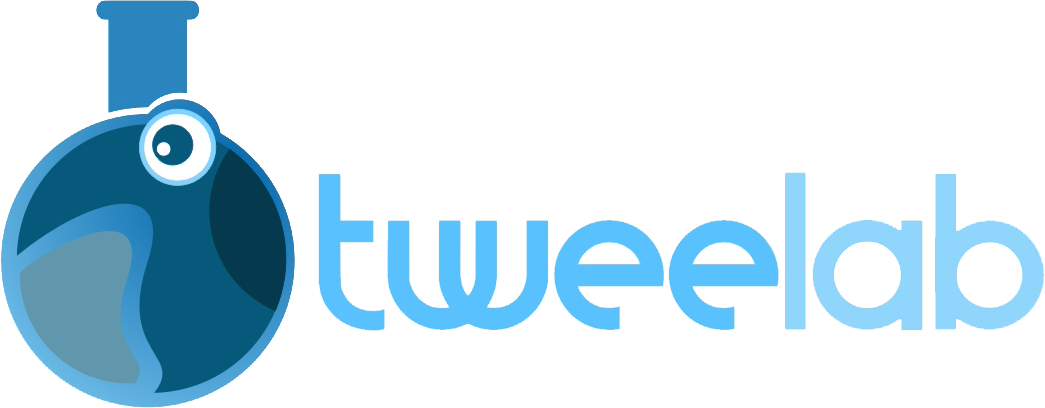Hey there, fellow bloggers! Are you just starting out in the blogging world and looking for ways to make money online? Well, look no further because I have ten secret tips that will help you kickstart your blog and start earning some serious cash.
Blogging can be a fun and rewarding hobby, but it can also be a lucrative profession if done right. However, many beginners struggle with navigating the ins and outs of monetizing their blogs. That’s where my top ten secrets come in – these tips are tried-and-true methods that successful bloggers use to turn their passion into profit.
So grab your coffee (or tea!), settle in, and let’s get started on making your dream of becoming a profitable blogger a reality.
Identifying Your Niche

Finding your niche is the first step to a successful blogging journey. The key is to identify what you’re passionate about and what can make you stand out from the competition.
Do some research on your potential competitors, find inspiration in their work, and then put your own unique spin on it.
To start identifying your niche, take a look at your interests and hobbies. What are you knowledgeable about? What do you enjoy doing in your free time? These are great starting points for finding a topic that will keep you motivated and engaged as you build your blog.
Once you’ve identified potential topics, it’s important to research the competition. Look for blogs or websites that cover similar topics and analyze what they’re doing well – and where there might be gaps in the market.
This will help guide your content creation strategy so that you can differentiate yourself from others in the space while still catering to an audience hungry for information in this area.
Creating High-Quality Content

When it comes to creating high-quality content for your blog, the first step is to brainstorm topics that will resonate with your target audience. Consider what questions they may have or problems they need solving and use this as a starting point for your topic ideas.
You can also do research on popular trends in your niche or industry to stay up-to-date and relevant.
Once you have a list of potential topics, focus on optimizing your Search Engine Optimization (SEO) by incorporating keywords throughout your post. This helps search engines understand what your content is about and can improve its visibility in search results. However, be careful not to overuse keywords as this can appear spammy and harm your rankings instead of helping them.
Finally, remember that quality trumps quantity when it comes to blogging. It’s better to publish one well-written, informative post per week than multiple low-quality posts filled with fluff. Take the time to carefully craft each post, using reliable sources and including visual aids if necessary.
By doing so, you’ll establish yourself as an authority in your niche and attract a dedicated following of readers who appreciate the value you provide through your content.
Building Your Audience

Now that you know how to create high-quality content, it’s time to start building your audience.
The first thing you need to do is get your blog in front of as many people as possible. One way to do this is by guest posting on other blogs. This will not only help you reach a new audience but also establish yourself as an authority in your niche.
Another great way to build your audience is by networking with other bloggers. By collaborating with others in your industry, you can tap into their existing audience and gain exposure for yourself. Reach out to fellow bloggers via social media or email and see if they’re interested in working together on a project or promoting each other’s content.
Finally, make sure you’re engaging with your own audience regularly. Respond to comments and messages promptly, ask for feedback, and encourage interactions on social media. Building strong relationships with your readership is crucial for long-term success as a blogger.
3 Ways To Build Your Audience:
- Guest post on other blogs: This helps you reach a wider audience while establishing credibility within the community.
- Network with other bloggers: Collaboration offers opportunities for increased visibility and engagement among followers.
- Engage regularly with your own audience: Establishing trust through interaction fosters loyal readership over time.
Remember that building an online following takes time and effort, so don’t be discouraged if progress seems slow at first. Stay consistent in producing quality content and actively seeking out opportunities for growth, and eventually, you’ll see results!
Monetizing Your Blog With Affiliate Marketing

Picture this: your blog is a garden that you have carefully tended to for weeks, months, or even years. You’ve watered it with high-quality content and nurtured it by engaging with readers. But now it’s time to reap the rewards of all your hard work.
One way to monetize your blog is through affiliate marketing. Affiliate marketing involves promoting products or services on your blog and earning a commission for every sale made through your unique referral link. It’s one of the most effective ways to earn passive income from your blog.
To get started with affiliate marketing, you’ll need to sign up for some of the best affiliate programs out there. These include Amazon Associates, ShareASale, Commission Junction, and Rakuten Marketing. Once you’re approved as an affiliate partner, you can start promoting their products on your blog.
However, simply adding links to random products won’t cut it. To be successful at affiliate marketing, you need to provide value to your readers while also recommending products they would actually find useful or interesting. This means writing product reviews or creating how-to guides that incorporate these products in a natural way.
By following these tips for effective affiliate marketing, you can turn your blogging hobby into a lucrative business venture without compromising on quality content creation!
Promoting Your Blog On Social Media

Now that we’ve covered how to monetize your blog with affiliate marketing, let’s talk about promoting it on social media. This is an essential step in growing your audience and increasing traffic to your site.
Firstly, make sure you’re creating engaging content that resonates with your targeted audience. It’s not enough to simply post links to your latest blog posts on social media; you need to give people a reason to click through and read more. Consider using eye-catching graphics or videos, crafting clever captions, and asking questions or sparking conversations.
Secondly, be strategic about which platforms you use and when you post. Different audiences tend to favor different social media channels – for example, Instagram may be best for visual content while Twitter is great for quick updates and news sharing. Additionally, pay attention to the times of day when engagement tends to be highest among your followers, so you can schedule posts accordingly.
Here are four additional tips for effectively promoting your blog on social media:
- Use hashtags wisely: Research relevant keywords and include them in your posts so they appear in search results
- Engage with other users: Follow accounts related to your niche and interact with their content by liking, commenting, or sharing
- Repurpose old content: Don’t let great articles go unnoticed! Share popular posts from the past via Throwback Thursday (#TBT) or Flashback Friday (#FBF)
- Run contests or giveaways: Encourage followers to engage with your brand by offering incentives like free products or exclusive discounts
Remember, building a strong presence on social media takes time and effort – but if done correctly, it can lead to increased visibility for your blog and ultimately help you earn money online through advertising revenue or sponsored partnerships.
Utilizing Email Marketing

Email marketing is an essential part of any successful blogging strategy. It allows you to connect with your audience on a personal level and can be an incredibly effective way to drive traffic and generate income.
However, to make the most out of email marketing, it’s crucial that you use automation tools.
One key benefit of using email automation is that it saves time. You don’t have to manually send emails or worry about scheduling them at the right time. Instead, you can create a series of automated emails that will be sent out at predetermined intervals. This means that you can focus on creating valuable content for your blog while still maintaining regular communication with your subscribers.
Another important aspect of email marketing is lead magnets. These are free resources or incentives that encourage people to subscribe to your list. Examples include e-books, webinars, and discount codes. By offering something valuable in exchange for their contact information, you’ll attract more subscribers who are genuinely interested in what you have to offer.
Incorporating email automation and lead magnets into your blogging strategy can help you build stronger relationships with your audience and increase revenue streams over time. So why not give it a try? Start by brainstorming some ideas for lead magnets and setting up a few automated emails – you might be surprised at just how much impact they have!
Analyzing Your Results And Making Adjustments

Now that you’ve learned how to utilize email marketing, it’s time to analyze your results and make adjustments accordingly.
Tracking metrics is crucial in determining the success of your blogging strategy. By monitoring key performance indicators such as open rates, click-through rates, and conversion rates, you can identify areas for improvement and optimize your content.
One effective way to improve your email marketing campaigns is through A/B testing techniques. This involves sending two versions of an email with slight variations to a small segment of your audience and analyzing which version performs better before sending the winning version to the rest of your subscribers.
Testing different subject lines, calls-to-action, or even the layout of your emails can help increase engagement and ultimately lead to more conversions.
Remember to continuously track and analyze your metrics while implementing A/B testing techniques. Making data-driven decisions will not only improve the effectiveness of your email marketing but also serve as a valuable tool in understanding what resonates with your audience.
With these tips in mind, you’re well on your way towards creating successful and profitable blog content.
Key Takeaways
- Finding your niche is the first step in successful blogging. Identify what you’re passionate about and what sets you apart from the competition.
- Create high-quality content by brainstorming topics that resonate with your target audience and incorporating SEO keywords appropriately.
- Building your audience involves guest posting on other blogs, networking with other bloggers, and engaging with your own audience regularly.
- Monetize your blog with affiliate marketing by promoting products or services and earning commissions through referral links.
- Promote your blog on social media by creating engaging content, using appropriate platforms, and leveraging strategies like hashtags and giveaways.
- Utilize email marketing with automation tools and lead magnets to connect with your audience and drive traffic to your blog.
- Analyze your results, track metrics, and make adjustments to improve your blogging strategy. A/B testing can help optimize your email marketing campaigns.
- Have realistic income expectations as a beginner blogger and focus on building an online presence and creating valuable content for your audience.
- A large social media following is not necessary to start a blog. Focus on creating high-quality content and engaging with your audience consistently.
- Finding a balance between popular and niche topics allows you to establish yourself as an expert and attract a dedicated audience.
- Consistency is key in publishing new blog content, aim for at least one post per week while maintaining quality.
- Common monetization mistakes for beginners include forcing content into a profitable niche, overlooking key strategies, and lacking proper planning and execution.
Frequently Asked Questions
How Much Money Can I Realistically Make From Blogging As A Beginner?
As a beginner blogger, it’s important to have realistic income expectations. Monetization strategies take time and effort to implement effectively, so don’t expect to see significant earnings right away.
However, with dedication and the proper strategy in place, you can definitely make money from your blog. The amount of money you can realistically make depends on various factors such as your niche, traffic volume, and monetization methods used.
It’s important to experiment with different strategies until you find what works best for your blog. Remember that blogging is not a get-rich-quick scheme but rather a long-term investment in building an online presence and creating valuable content for your audience.
Is It Necessary To Have A Large Social Media Following Before Starting A Blog?
It’s a common misconception that you need to have thousands of followers on social media before starting a blog.
While having a large following can certainly help with engagement and building a loyal audience, it is by no means necessary for success in the blogging world.
In fact, some of the most successful bloggers started from scratch without any social media presence at all!
The key is to focus on creating high-quality content that resonates with your target audience and consistently engaging with them through comments, email newsletters, and other channels.
With time and dedication, you’ll build up a strong community of readers who will support you every step of the way.
Should I Focus On Writing About Popular Topics Or Niche Topics?
When it comes to finding your blogging niche, the question of whether to focus on popular or niche topics is a common one.
While writing about popular topics may seem like a surefire way to gain traffic and make money online, it can be difficult to stand out in a crowded field.
On the other hand, focusing on a specific niche allows you to establish yourself as an expert in that area and attract a dedicated audience.
Ultimately, the key is to find a balance between writing about topics that interest you and have potential for growth while also catering to your target audience’s needs.
By doing so, you’ll be able to develop content that resonates with readers and sets you apart from the competition.
How Often Should I Publish New Content On My Blog?
As a blogger, it’s essential to establish an SEO strategy that includes content frequency.
Consistency is key when it comes to publishing new content on your blog. While there isn’t necessarily a magic number for how often you should publish, aim for at least one post per week to keep your audience engaged and improve your website’s search engine ranking.
However, don’t sacrifice quality for quantity – always ensure that each piece of content provides value and meets the needs of your target audience.
By balancing both consistency and quality, you can effectively grow your blog’s readership and increase your chances of monetizing your site.
What Are Some Common Mistakes That Beginners Make When Trying To Monetize Their Blog?
When it comes to monetizing a blog, beginners often stumble upon the same pitfalls. They may try to force their content into a profitable niche that doesn’t quite fit or overlook key monetization strategies in favor of quick fixes.
It’s like trying to build a house without laying down a solid foundation first – you may see some initial growth, but your success will eventually crumble without proper planning and execution.
Instead, take the time to research profitable niches and brainstorm creative ways to integrate monetization tactics seamlessly into your content. Remember, patience is key when building an online business!
Final Thought
In conclusion, blogging can be a lucrative endeavor for beginners who are willing to put in the time and effort. While it may take some time to build up an audience and start earning money, there are plenty of opportunities available for those who are committed to their craft.
One secret tip that I have found particularly helpful is to stay true to your niche and write from personal experience. This not only makes your content more authentic, but also helps you establish yourself as an expert in your field.
Another important factor is consistency – make sure you are publishing new content on a regular basis and engaging with your readers through comments and social media.
So, whether you’re just starting out or looking to take your blog to the next level, remember these tips and don’t get discouraged if success doesn’t come overnight. With patience, dedication, and a little bit of creativity, you too can join the ranks of successful bloggers making money online.

